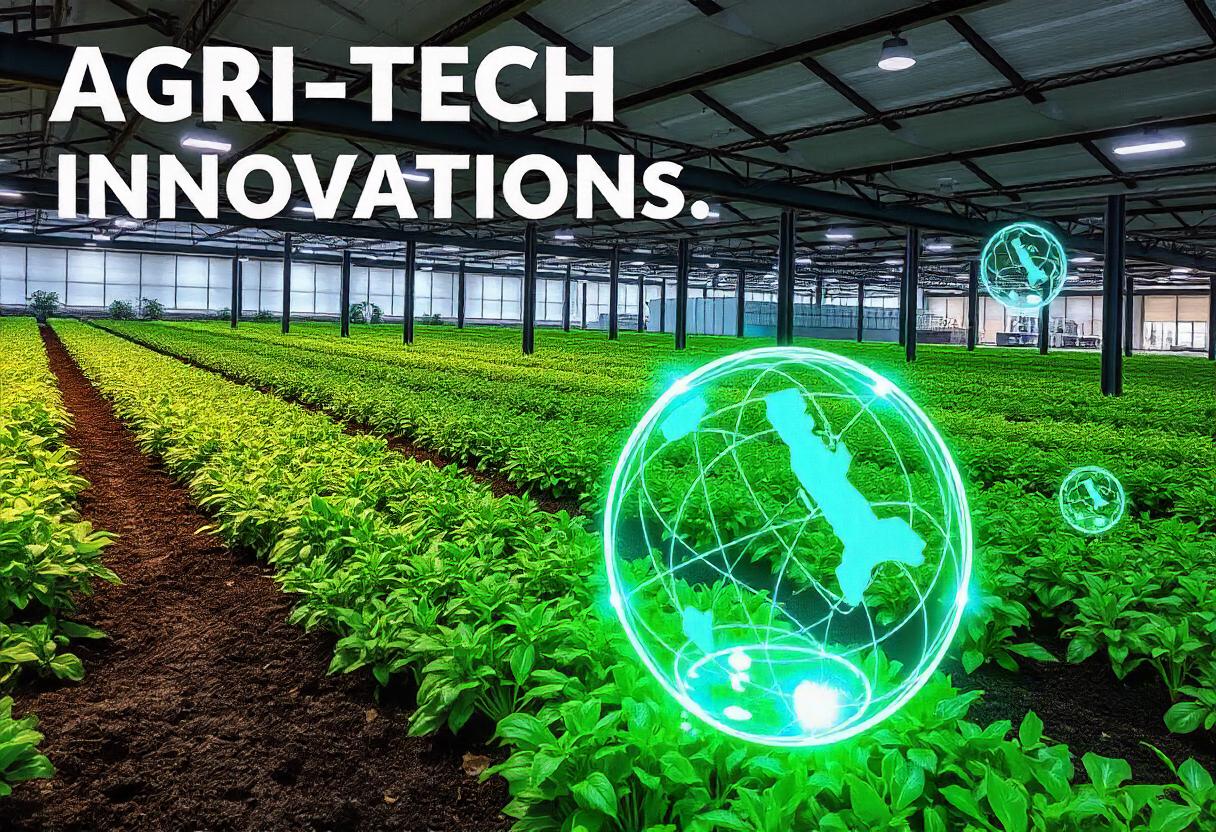
Introduction
Agriculture, one of the oldest and most fundamental human activities, is undergoing a significant transformation thanks to advancements in technology. Agri-tech innovations are revolutionizing farming practices, improving crop yields, and ensuring sustainability. This article delves into the key innovations in agri-tech, their impact on the agriculture sector, and their potential to address global challenges.
1. Precision Agriculture
Precision agriculture refers to the use of technology to monitor and manage crop production at a micro-level. This approach utilizes various tools to enhance the efficiency and productivity of farming.
- GPS and GIS Technology: GPS (Global Positioning System) and GIS (Geographic Information System) technologies allow farmers to collect and analyze data about soil conditions, crop health, and weather patterns. By mapping fields and using data-driven insights, farmers can apply inputs (like water, fertilizers, and pesticides) precisely where needed, reducing waste and improving crop yields.
- Drones and Satellites: Drones equipped with high-resolution cameras and sensors provide real-time aerial imagery of crops. This data helps in monitoring plant health, identifying pest infestations, and assessing soil conditions. Similarly, satellite imagery offers broader insights into agricultural practices and land use.
- Variable Rate Technology (VRT): VRT allows farmers to adjust the application rates of inputs based on the specific needs of different areas within a field. This precision reduces input costs and minimizes environmental impact.
2. Smart Irrigation Systems
Water management is crucial in agriculture, and smart irrigation systems offer advanced solutions to optimize water use.
- Soil Moisture Sensors: These sensors measure soil moisture levels and provide data on when and how much to irrigate. By preventing over- or under-watering, these systems enhance water efficiency and crop health.
- Automated Irrigation Systems: Integrated with weather forecasts and soil data, automated irrigation systems can adjust watering schedules and volumes accordingly. This reduces water wastage and ensures crops receive the right amount of water.
- Drip and Sprinkler Systems: Innovations in drip and sprinkler irrigation technology allow for more efficient water distribution. Drip systems deliver water directly to the plant’s root zone, while modern sprinkler systems offer precise coverage, minimizing water loss.
3. Agricultural Robotics and Automation
Robotic technology and automation are streamlining farming operations, making them more efficient and less labor-intensive.
- Harvesting Robots: Automated harvesters and robotic systems can pick fruits and vegetables with precision, reducing the need for manual labor and minimizing damage to crops.
- Weed Control Robots: These robots use sensors and machine learning to identify and remove weeds. By targeting only the weeds, they reduce the need for herbicides and improve crop yields.
- Planting and Seeding Robots: These machines automate the planting process, ensuring uniform seed placement and depth. This improves germination rates and crop consistency.
4. Biotechnology and Genetic Engineering
Biotechnology and genetic engineering are playing a crucial role in developing crops that are more resilient, nutritious, and productive.
- Genetically Modified Organisms (GMOs): GMOs are crops that have been altered to exhibit desirable traits such as resistance to pests, diseases, or environmental stress. These modifications can lead to higher yields and reduced reliance on chemical inputs.
- CRISPR Technology: CRISPR (Clustered Regularly Interspaced Short Palindromic Repeats) is a groundbreaking gene-editing technology that allows for precise modifications to an organism’s DNA. In agriculture, CRISPR is used to develop crops with improved traits, such as enhanced nutrient content or resistance to specific pathogens.
- Biofortification: This process involves increasing the nutritional value of crops through breeding or biotechnology. Biofortified crops can help address micronutrient deficiencies in populations that rely heavily on staple foods.
5. Sustainable Farming Practices
Agri-tech innovations are also driving sustainability in agriculture, which is essential for long-term food security and environmental conservation.
- Precision Livestock Farming (PLF): PLF uses technology to monitor and manage livestock health and productivity. Sensors and wearable devices track animal behavior, health metrics, and environmental conditions, enabling early intervention and optimizing animal welfare.
- Circular Agriculture: This approach emphasizes the recycling of resources within the agricultural system. Innovations include using organic waste for composting, biogas production, and integrating crop and livestock systems to enhance nutrient cycling.
- Regenerative Agriculture: Regenerative practices focus on restoring soil health and biodiversity. Technologies that support regenerative agriculture include cover cropping, reduced tillage, and agroforestry, which contribute to carbon sequestration and ecosystem resilience.
6. Data Analytics and Artificial Intelligence
Data analytics and AI are transforming decision-making in agriculture by providing actionable insights and predictive capabilities.
- Farm Management Software: Advanced software platforms aggregate data from various sources, such as sensors, weather forecasts, and market trends. This information helps farmers make informed decisions regarding planting, harvesting, and resource management.
- Machine Learning Algorithms: AI-driven algorithms analyze vast amounts of agricultural data to identify patterns and predict outcomes. This technology aids in optimizing crop management, pest control, and yield forecasting.
- Decision Support Systems: These systems integrate data from multiple sources to provide recommendations for farm management. They help farmers optimize resource use, manage risks, and increase overall productivity.
Agri-tech innovations are reshaping the agricultural landscape, offering solutions to increase productivity, enhance sustainability, and address global food security challenges. By integrating advanced technologies such as precision agriculture, smart irrigation, robotics, biotechnology, and AI, the agriculture sector is becoming more efficient, resilient, and environmentally friendly. As these technologies continue to evolve, they hold the promise of a brighter, more sustainable future for farming worldwide.